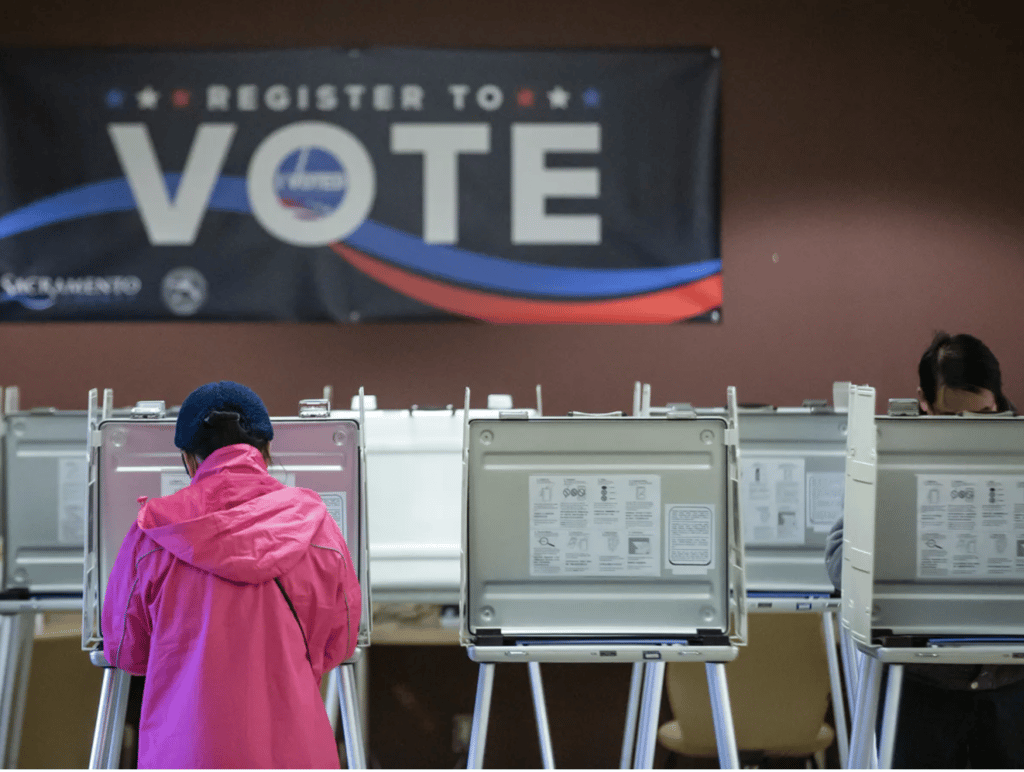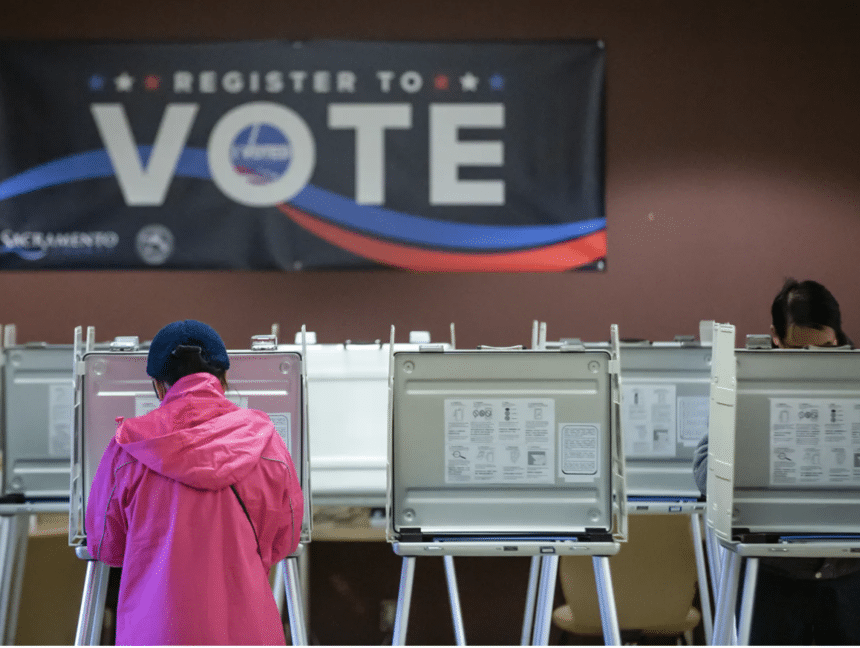Defeat Gambling Initiatives and Flavored Tobacco Sales to Kids
California voters on Tuesday approved a ballot measure backed by a celebrity lineup that included Barbra Streisand and Los Angeles-born rappers will.i.am and Dr. Dre that could pump as much as $1 billion a year from the state’s general fund into arts education.
The measure had faced no organized opposition, a rarity. With about a quarter of the ballots counted, Proposition 28 won handily with 75.8% of the vote. It will require the state to provide the equivalent of 1% of California’s state funding for public schools from pre-kindergarten through 12th grade for the arts.
Supporters said it would benefit public school programs that go beyond the traditional art, theater, dance and music classes to include graphic design, computer coding, animation, music composition and script writing.
Despite California’s vibrant arts and music scene that has given the world everything from Hollywood to surf rock, fewer than a quarter of its public schools have a full-time arts or music education teacher, and some schools offer no such classes at all.
The measure will send 30% of the earmarked money to low-income school districts, which have a large number of Black and Latino students.
It was backed by everyone from Austin Beutner, the former superintendent of the Los Angeles Unified School District, to the Los Angeles County Business Federation.
California voters overwhelmingly approved a ballot measure to formally establish a right to reproductive freedom, most notably the right to an abortion, in the state constitution.
Proposition 1 was drafted by the state Legislature as a direct response to the U.S. Supreme Court’s overturning of Roe v. Wade, which had established the federal right to an abortion for nearly 50 years.
“With the court punching holes in constitutional protections, ourrights are in free fall,” Assembly Speaker Anthony Rendon, D-Lakewood, said inJune when the measure was approved in Sacramento.
He called the proposition “our opportunity to turn to California voters — who have strongly supported abortion rights — and let them enshrine this crucial right in California’s Constitution.”
Senate President Pro Tem Toni Atkins, D-San Diego, co-authored the
measure, saying “abortion is health care” that should be discussed between a
patient and doctor, not politicians.
The rebuttal to the argument in favor of Proposition 1 in the Official Voter Information Guide distributed to voters by the Secretary of State’s Office declares that “Proposition 1 is not needed to protect abortion rights but it will cost California taxpayers millions” through the increased number of abortion seekers from other states coming to California.Voters also voted to allow a law banning flavored tobacco products such as menthol cigarettes and strawberry gummy vaping juice to go into effect.
State voters also allowed a law banning flavored tobacco products such as menthol cigarettes and strawberry gummy vaping juice to finally go into effect.
A campaign funded by tobacco giants, including R.J. Reynolds Tobacco Co. and Philip Morris USA, had effectively blocked the law passed two years ago. The $20 million campaign gathered enough signatures to put the issue on the statewide ballot.
Supporters of the ban, who included doctors, child welfare advocates and the state’s dominant Democratic Party, said the law was necessary to put a stop to the staggering rise in teen smoking.
It’s already illegal for retailers to sell tobacco to anyone under 21. But advocates of the ban said flavored cigarettes and vaping cartridges were still too easy for teens to obtain. The ban doesn’t make it a crime to possess such products but retailers who sold them to kids could be fined up to $250.
A pair of statewide ballot measures that would have expanded gambling in the state were soundly defeated. Proposition 26 on Tuesday’s ballot would have allowed tribal casinos in the state to offer on-site sports betting, which would have also been permitted at four horse tracks in the state. The measure would also have allowed tribal casinos to offer roulette and dice games such as craps.
Meanwhile, Proposition 27 would have authorized online and mobile sports wagering in the state.
On a separate topic, for a 3rd time voters also turned down Proposition 29, which would have imposed strict regulations on kidney dialysis clinics. Among the rules would have been a requirement for a doctor, nurse practitioner or physicians assistant to be on site during dialysis treatments, a disclosure requirement for physicians with clinic ownership stakes and a requirement for clinics to report dialysis-related infection data to the state.




Your point of view caught my eye and was very interesting. Thanks. I have a question for you.
I don’t think the title of your article matches the content lol. Just kidding, mainly because I had some doubts after reading the article.
Thanks for sharing. I read many of your blog posts, cool, your blog is very good.
Thank you for your sharing. I am worried that I lack creative ideas. It is your article that makes me full of hope. Thank you. But, I have a question, can you help me?
I don’t think the title of your article matches the content lol. Just kidding, mainly because I had some doubts after reading the article.
I don’t think the title of your article matches the content lol. Just kidding, mainly because I had some doubts after reading the article.
Your point of view caught my eye and was very interesting. Thanks. I have a question for you.
Your point of view caught my eye and was very interesting. Thanks. I have a question for you.
I don’t think the title of your article matches the content lol. Just kidding, mainly because I had some doubts after reading the article.
Thanks for sharing. I read many of your blog posts, cool, your blog is very good.
Can you be more specific about the content of your article? After reading it, I still have some doubts. Hope you can help me.
Your article helped me a lot, is there any more related content? Thanks! https://accounts.binance.com/en-ZA/register-person?ref=B4EPR6J0